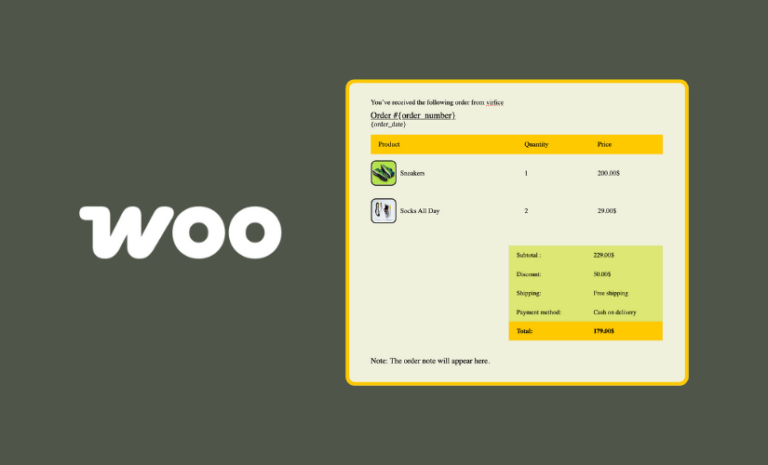Want to know what the CAN-SPAM Act is and how email senders can accurately comply with it? Read our article for a complete guide on CAN-SPAM Act compliance.
The CAN-SPAM Act, enacted in 2003, is a U.S. law regulating commercial emails and messages. It mandates specific requirements for subject lines, disclosures, and headers, and provides recipients with the right to opt-out of receiving future emails. The law is enforced by the Federal Trade Commission (FTC) and aims to reduce the spread of unwanted commercial emails.
In this article, we will discuss more about the CAN-SPAM Act, know its provisions, and learn how to comply with it while sending email marketing campaigns for any business. So, let’s get started.
What is the CAN-SPAM Act?

The CAN-SPAM Act, which stands for Controlling the Assault of Non-Solicited Pornography And Marketing Act, is a U.S. law that was enacted in 2003 to regulate commercial email. Its primary aim is to protect consumers from unwanted and deceptive commercial emails, also known as spam. The law sets forth specific requirements for commercial email messages and provides recipients with the right to stop receiving them.
The CAN-SPAM Act Key Provisions
- Clear Identification: Emails must indicate they are advertisements.
- Opt-Out Mechanism: Every email must include a way for recipients to unsubscribe, which must be honored within 10 business days.
- Accurate Information: The email’s header and subject line must not be deceptive.
- Physical Address: A valid physical postal address of the sender must be included.
Applicability and Compliance
The Act applies to all commercial messages, including emails promoting products or services, even if the recipient has given prior consent. Transactional or relationship messages, such as purchase confirmations, are generally exempt.
What Types of Emails Are Subject to the CAN-SPAM Act?
The CAN-SPAM Act applies to any email whose primary purpose is commercial, meaning it promotes or advertises a commercial product or service. This includes marketing emails, newsletters with promotional content, and other types of commercial messages. Transactional or relationship messages, such as purchase confirmations and shipping notifications, are generally exempt as their primary purpose is to facilitate an ongoing transaction.
What Types of Emails Are Not Subject to the CAN-SPAM Act?
Relationship messages are emails that primarily facilitate, complete, or confirm a transaction or relationship the recipient already has agreed to. These types of messages are generally exempt from most provisions of the CAN-SPAM Act, provided they do not contain false or misleading routing information. The primary categories of relationship messages include:
Transactional Emails: Are Transactional Emails Subject to the CAN-SPAM Act?
The CAN-SPAM Act primarily applies to emails with commercial content. Transactional emails, such as purchase confirmations or shipping updates, which relate to an ongoing or completed transaction between the sender and recipient, are generally exempt.
For example, if Alice buys a book online and receives a confirmation email, this email is not subject to the CAN-SPAM Act. However, if the seller later sends her a marketing email about a promotion, that marketing email must comply with the Act’s regulations.
Product or Service Information:
Messages that provide information about a product or service the recipient has purchased. This includes warranty information, product recall notices, and safety or security information.
Account or Subscription Updates:
Notifications about changes in the terms or features of a subscription, membership, account, or other ongoing commercial relationship. This also includes updates on the recipient’s status concerning the ongoing relationship, such as balance statements or account status updates.
Employment Information:
Communications related to an employment relationship or employee benefits. For instance, emails regarding changes in employment terms or benefits information.
Delivery of Goods or Services:
Emails that deliver goods or services as part of a transaction the recipient has previously agreed to. This might include electronic tickets or digital downloads.
These messages are designed to maintain and manage an existing relationship with the recipient rather than promote or advertise a commercial product or service. Therefore, they are treated differently under the CAN-SPAM Act compared to purely commercial emails.
For more detailed information, you can go to the FTC’s guide on the CAN-SPAM Act.
In short, the transactional and relationship emails are not subject to the CAN-SPAM Act. These types of messages, such as purchase confirmations or warranty information, are generally exempt from most provisions of the CAN-SPAM Act, provided they do not contain false or misleading routing information.
Penalties for Non-Compliance of CAN-SPAM Act
Violations can result in penalties of up to $43,792 per email. The FTC, state attorneys, and internet service providers can take legal action against offenders.
Both the company whose product is promoted and the company that sends the message can be held legally responsible.
So, the companies should be aware of third-party companies promoting their products as both parties can be held responsible if not compliant.
Comparison with ePrivacy Directive
Unlike the CAN-SPAM Act, the EU’s ePrivacy Directive requires recipients to opt-in before receiving marketing emails. Both laws, however, require clear identification of the sender and an easy opt-out process.
Reporting Violations
Recipients can report violations to the FTC or their email provider. Businesses can protect against domain spoofing by using email authentication methods like DKIM, SPF, and DMARC.
How to Comply with the CAN-SPAM Act
CAN-SPAM Act provisions are simple and fall under the standard practice of email marketing. And it is not difficult to comply with the CAN-SPAM Act for any company. If you want to ensure compliance with the CAN-SPAM Act, follow the steps described below:
- Accurate Information: Ensure that your “From,” “To,” “Reply-To,” and routing information is accurate and identifies the person or business sending the message.
- No Deceptive Subject Lines: The subject line must accurately reflect the content of the email.
- Identify the message as an Ad: Disclose that your message is an advertisement.
- Provide a Physical Address: Include your valid physical postal address.
- Opt-Out Mechanism: Provide a clear and conspicuous explanation of how recipients can opt out of receiving future emails. Include a return email address or another Internet-based way to allow people to communicate their choice to you.
- Honor Opt-Out Requests Promptly: The CAN-SPAM Act requires businesses to handle opt-out requests within 10 business days and maintain a valid opt-out mechanism for at least 30 days after sending an email. Recipients must have the option to stop all future messages, though they can also choose to receive only certain types of emails. Businesses can provide an email address or an internet-based method, like a website form, to opt-out.
- Monitor Third-Party Compliance: If you hire another company to handle your email marketing, you must monitor their compliance as well. You cannot contract away your legal responsibility to comply with the law.
By adhering to these guidelines, businesses can effectively comply with the CAN-SPAM Act and avoid legal repercussions.
The CAN-SPAM Act is a critical piece of legislation designed to protect consumers from unwanted and deceptive commercial emails. Understanding and complying with its requirements is essential for any business that engages in email marketing. Key compliance measures include ensuring accurate header information, avoiding deceptive subject lines, clearly identifying emails as advertisements, providing a valid physical address, and offering a straightforward opt-out mechanism. By adhering to these guidelines, businesses can not only avoid hefty fines but also build trust and credibility with their audience. Staying informed and proactive about compliance will help maintain a positive relationship with email recipients and ensure that marketing efforts are both effective and lawful.



